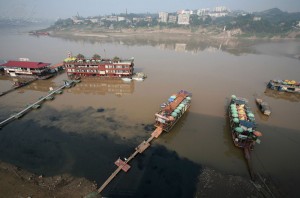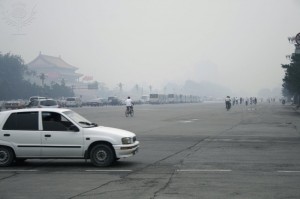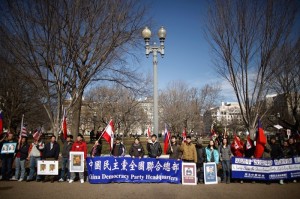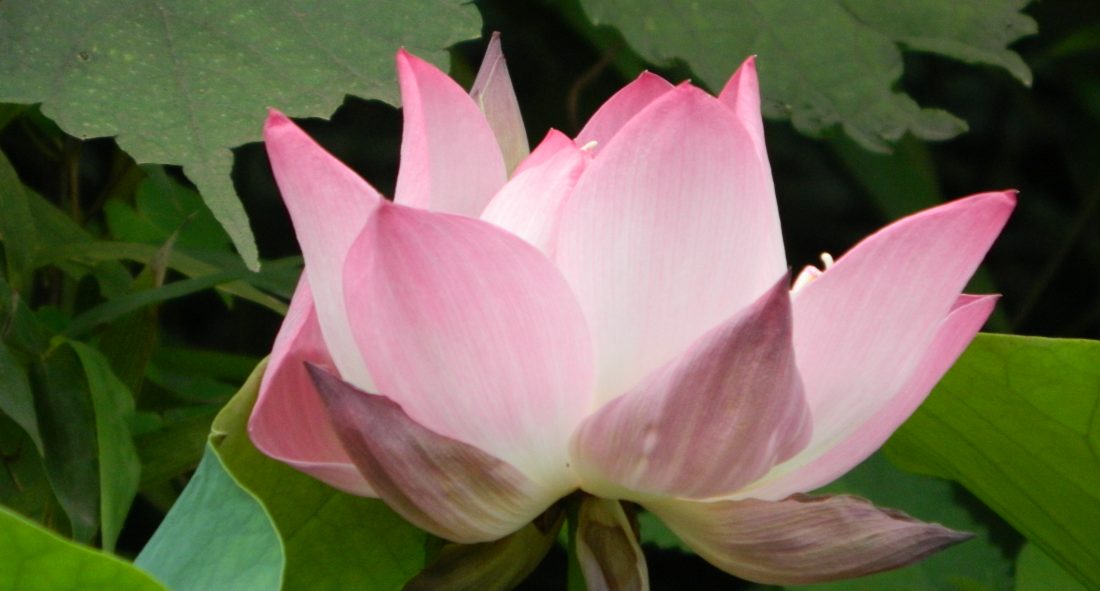By Vanessa Chambers, Austin Saggus, Grant Schuermann, Christen Sikora

Has the Chinese Government stopped or slowed down progress for environmental activism in China? Is China trying to stop or dilute this sort of activism? Is China polluting environmental activism? The answers may surprise you. Pollution in China is a serious issue and needs to be dealt with as this issue continues to grow at an alarming rate.
So, has the government played a significant role in the elimination of environmental activism? The answer is yes. Although the Chinese government has taken serious strides in the reduction of pollution in China, the government has also significantly limited NGO’s (Non Governmental Organizations) from advocating major solutions to the pollution problem. These NGO groups have to be careful and limit themselves to specific forms of environmental activism or face serious penalties. A book titled, Assessing Chinese Government Response to the Challenge of Environment and Health: A Report of the CSIS Freeman Chair in China Studies by Charles Freeman and Xiaoqing Lu exhibits how although China in recent years has expanded the capabilities of NGO’s, the NGO’s are still under strict limitations of environmental advocacy. An example would be average citizens or an NGO reporting some form of illegal dumping by a local Chinese government in which case the NGO would be battling in court local governments, which could result in increased opposition of these environmental groups. According to Freeman and Xiaoqing, “Recent crackdowns have made it difficult for environmental of health groups to broaden their scopes to address the nexus of environment and health and to become effective partners of the government to tackle the emerging challenge.” A possible NGO group would be the Tibet environmentalist group featured in Emily Yeh’s film titled, Shielding the Mountains. In the film, environmental actvisists are attempting to protect a endangered species and one of the leaders of the group is killed by poachers as a result. The film properly exhibits not only the innovative spirit the at Chinese possess, but also shows the risks of such a group and sometimes the ultimate cost of protecting the environment. Pollution is not just a Chinese problem it is a worldwide problem.

Water pollution is one of the most important types of pollution to be concerned about as it is often impossible to detect. When people start getting sick and developing cancer, it is often attributed to pollution in water or food. In China, this is a major issue. In Xinlong, water was contaminated with, “large amounts of the cancer-causing chromium VI, used in electroplating and in the manufacture of stainless steel”(Dissent). When people started attributing this to plants in the city, protests start and people turn to social media. The outrage is often shown on media such as qq, We-Chat, and weibo, where people strike out against the government regulations of the plants. In rebuttal to these claims of injustice, “The government uses these same social networking sites to disseminate its own information, or to plea for harmony and social order. Online activists then mock and ridicule these government postings. The protests on the street, the use of web-based social networking platforms, and the government security apparatus are in constant play during these events.” The government doesn’t limit their oppression to just environmental activists, however. Recently for April 16, 2015, 5 women were detained over speaking out against sexual harassment and only a few days ago were they released after massive online outcry (BBC). The Chinese government tends to turn a blind eye to the issues that people are dealing with throughout the country when it comes to any movement. The environment is one issue that the government needs to look at and not ignore the pleas of citizens as it is an issue that affects everyone. Water is something that everyone uses and drinks every day and should be kept safer in order to let everyone live a safe life.

China’s environmental risks have led to increased health concerns. The country’s environmental pollution has caused birth defects and the damaging of peoples’ immune system. Air pollution has become a huge issue in urban cities in China. It has been proven that China has the world’s highest level of NO2 that can lead to fatal lung damage (Xiaoqing and Gill). In recent years, China has consumed a harmfully large amount of gases. They have increased their amount of sulfur dioxide and carbon dioxide significantly since 2005. It is believed by the World Health Organization, that China’s severe air pollution is the reason for the increase in types of lung diseases amongst the chinese people. As stated in the journal entry, Assessing China’s Response to the Challenge of Environmental Health, about 411,00 premature deaths occurred due to air pollution. The fixing of air pollution will be difficult for China because of coal being their main source of energy so until another primary energy source is found, it will be difficult for the government to control the air pollution.

As we have seen, the pollution problem is not going away and is certainly a serious issue for China and the world as a whole. This blog exhibits not only the problems of the environmental impact in China but it also has the solution. We need a solution as big as the problem and it all begins with those who are able to make such an impact. Bill McKibben’s book, Fight Global Warming Now exhibits the proper tools and strategies necessary to take action in the Chinese community and organize events and campaigns. The book goes into great detail about how to begin such a campaign, how to make it credible, attractive, relatable, entertaining, enjoyable, and how to attract media attention as well. This has to begin somewhere and by the looks of this it is not happening in the chambers and halls of government establishments in China. The people have to make the change and that is exactly how we are going to stop this aggressive form of pollution because once we get one billion people to do something, then we have found the solution that is as big as the problem.
See Also:
Talk Noodle to Me: https://blogs.furman.edu/chinamyths/2015/04/15/talk-noodle-to-me/
The Colonel Infiltrates China: https://blogs.furman.edu/chinamyths/2015/04/15/the-colonel-infiltrates-china/
Bibliography
Fight Global Warming Now: The Handbook for Taking Action in Your Community, Bill McKibben, New York: Henry Holt, 2007.
LU, Xiaoqing, and Bates Gill. “Assessing China’s Response to the Challenge of Environmental Health,” China Environment Series 9 (2007).
LU, Xiaoqing, and Charles Freeman, “Assessing China’s Response to the Challenge of Environmental Health: An Issue of Significance,” China Environment Series 9 (2008), 3-14.
Jeffery Wasserstrom, May 15, 2013, “The Pollution Crisis and Environmental Activism in China: A Q&A with Ralph Litzinger,” Dissent Magazine, April 14, 2015, http://www.dissentmagazine.org/online_articles/the-pollution-crisis-and-environmental-activism-in-china-a-qa- with-anthropologist-ralph-litzinger
BBC News. April 14, 2015, “Rights Groups Welcome Release of Chinese Women Activists,” BBC News, April 14, 2015, http://www.bbc.com/news/world-asia-china-32285585
Shielding the Mountains. Emily T. Yeh. Asian Educational Media Service, Center for East Asian & Pacific Studies, University of Illinois at Urbana-Champaign, 2010. Film.

I think this is a very important topic that needs to be discussed. We all know that China is facing some major environmental issues but your blog does a great job of breaking it down. It was shocking to learn how the government is inhibiting progress in addressing these environmental issues.
Overall, I enjoy reading the blog. It is informative and easy to read. All the suggestions other give is really helpful, so I won’t repeat any of their suggestions. First, I won’t put the picture before the introduction. Second, I feel the paragraph about the air pollution is a little of topic because I see neither environmental activism nor government’s suppression towards any Activism. It will be very helpful for your blog to add one or two sentence about Government’s suppression towards environmental(air pollution) activism. Also, I will delete the sentence ” Due to coal being China’s main energy source, air pollution has become a dangerous environmental issue” because you mention coal later again in a better way. Then, I will combine the last two sentence of the “air” paragraph. If you read through it, you will know it’s a easy fix. Here is a link for a scholar journal that I believe can be helpful. The article talks about the situation of environmental NGOs in China.
http://journals.cambridge.org/action/displayFulltext?type=1&fid=290067&jid=CQY&volumeId=181&issueId=-1&aid=290066
I like the way you address questions at the beginning, since it not only give an idea of this post to the readers and stimulate their interests, but also let the readers think and try to find answers by themselves while reading the following part. However, I think it might be a little bit sudden to draw the question from Chinese government and the environmental issue to the Chinese government and the sexual harassment issue in the third paragraph, since it may interrupt and distract the readers. Also, I think the fourth picture is not so relevant to your topic, since it has nothing to do with China or Chinese people. But good job overall.
Great post, it’s awesome to see another form of this commom theme of oppression of the people from China for the sake of what seems like economic expansion and control of the people. I am surprised by the way they go about handling it by using social media and things to ask for social order, I think that with the power that they hold over the Internet and things that they could do more to oppress their people and “keep harmony.” It may be too hard but a suggestion would be to maybe add some links on at the end to websites of organizations that have already started campaigns to end pollution and the oppression of the Chinese people, maybe Amnesty International on the case of the social issue of China?
I found your post really interesting and informative. Yes, it is true that the government is working to improve the environmental conditions. However, Chinese People do face oppression when they try to raise their voice against the same environmental problems. Chinese government is very strict about the issues of mass-movement. Though the blog is already rich with their sources,I just thought the following article might be helpful. It is an article from New York Times that talks about how a documentary on air pollution in China was taken down under the government’s order. So, this might help you elaborate your point on problems faced by environment activist in China.
http://www.nytimes.com/2015/03/07/world/asia/china-blocks-web-access-to-documentary-on-nations-air-pollution.html?_r=0
I found this blog to be an interesting read and for the most part well put together. In regards to the photos, an additional caption describing what exactly is being presented in each photo or what you want the reader to notice in each photo would be helpful. Additionally I saw that you put the photo credits at the end but it is a fairly easy process to imbed links to the photo sources in the pictures themselves. I liked the opening with the rhetorical questions, but because the questions are the first thing one reads you might want to revise them to make them even more attention grabbing. Also, I was a little confused by the second question. What do you mean by “Is China trying to destroy or taint this kind of activism”? Are you trying to say that the government is stopping environmental activists from protesting or that the government is spreading false news about the environment? Is the government imprisoning environmental activists or restricting their ability to publish articles or photos? Since this is the beginning of the article clarity is key, and you don’t want someone to stop reading because they are confused. Additionally pollution is a topic that many people have already heard a lot about so you want to be sure that readers know you are discussing something unique or different. Working towards additionally clarity would be my comment overall, as I see the points you are trying to make but sometimes they are bogged down in poorly worded sentences or non-integrated quotes (some of the quotes are extremely long, and if you want to keep them that long I would use block quoting instead of keeping them in the paragraph). Overall I enjoyed reading your blog!
Well done on this post. Very informative and I believe it accomplishes what it set out to do. I would suggest citing your photos used with the link under the caption.
It’s kind of scary to think that we live in a world where an entire government will take actions to delay serious environmental progress. It seems apparent to me after reading your blog that China’s government is only willing to take environmental action if they get to pick and choose what issues they resolve and what issues they ignore. Overall, i enjoyed your blog. However, I thought that bringing up the issue of also suppressing sexual harassment diluted your purposes for this article. While i see it as an important issue that should be talked about, it doesn’t really relate to the environmental activism that seems to be your subject.